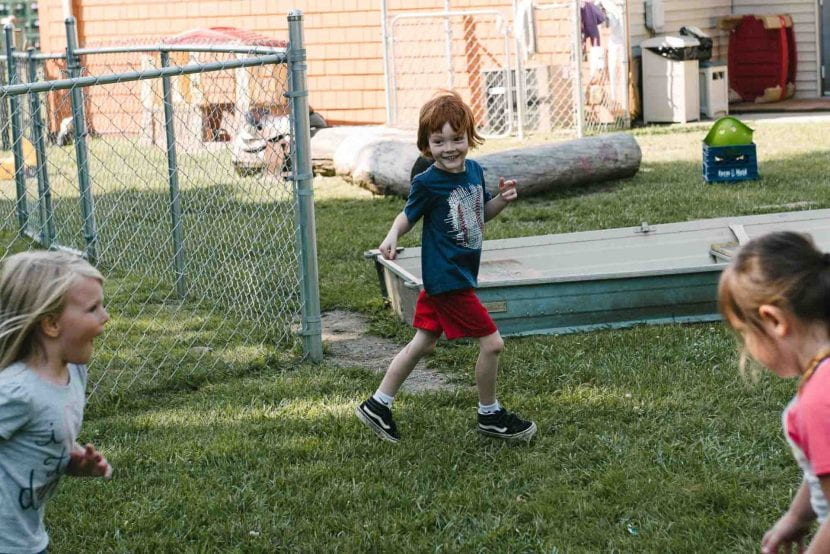Play benefits children in each domain of development like nothing else does. It helps children learn about the world, develop the skills they need to interact with others, manage their emotions, and it promotes curiosity and learning. Research on play tells us that play is essential for children’s well-being. In fact, “play is so important to optimal child development that is has been recognized by the United Nations High Commission of Human Rights as the right of every child.” – The American Academy of Pediatrics’ Clinical Report.
Despite what the research tells us, the amount of time children spend playing has steadily decreased since the 1950’s. Some reasons why play has declined include parental fear, increased use of technology, more academic pressure, the loss of recess, and children being over-scheduled in enrichment activities.
Playing outside is especially good for children in the following ways:
- inspires an active imagination
- teaches children to work as a team
- helps children become better problem solvers
- leads to higher scores on standardized tests
- reduces stress
- improves behavior
- promotes kindness
- improves sleep
- reduces symptoms of attention deficit hyperactivity disorder
Playing outdoors addresses many of the concerns parents have for their children’s physical health, mental well-being, character development, and school success. However; in most cases, children spend fewer than 10 minutes per day playing outdoors.
Tips for supporting children’s play:
- Provide play props that encourage creativity such as blocks, art supplies, cardboard boxes, paper towel tubes, kitchen items, empty food containers, rocks, and sticks.
- Avoid electronic and character toys which are often limited in their use and stifle children’s imaginations.
- Protect play by allowing your child time to play and avoid over-scheduling your child in structured activities.
- Get children outside.
- Keep an eye on how much time children use screens. Make sure that screen time is balanced with other activities. Once children start using screens, they may become passive players and lose the desire to be active, curious learners. This can negatively impact their future learning.
(Source: “Whole Child: Developing Mind, Body and Spirit through Outdoor Play” National Wildlife Foundation)
All Blogs are written by Professionals in the fields of Nutrition, Human Development and Diabetes.
